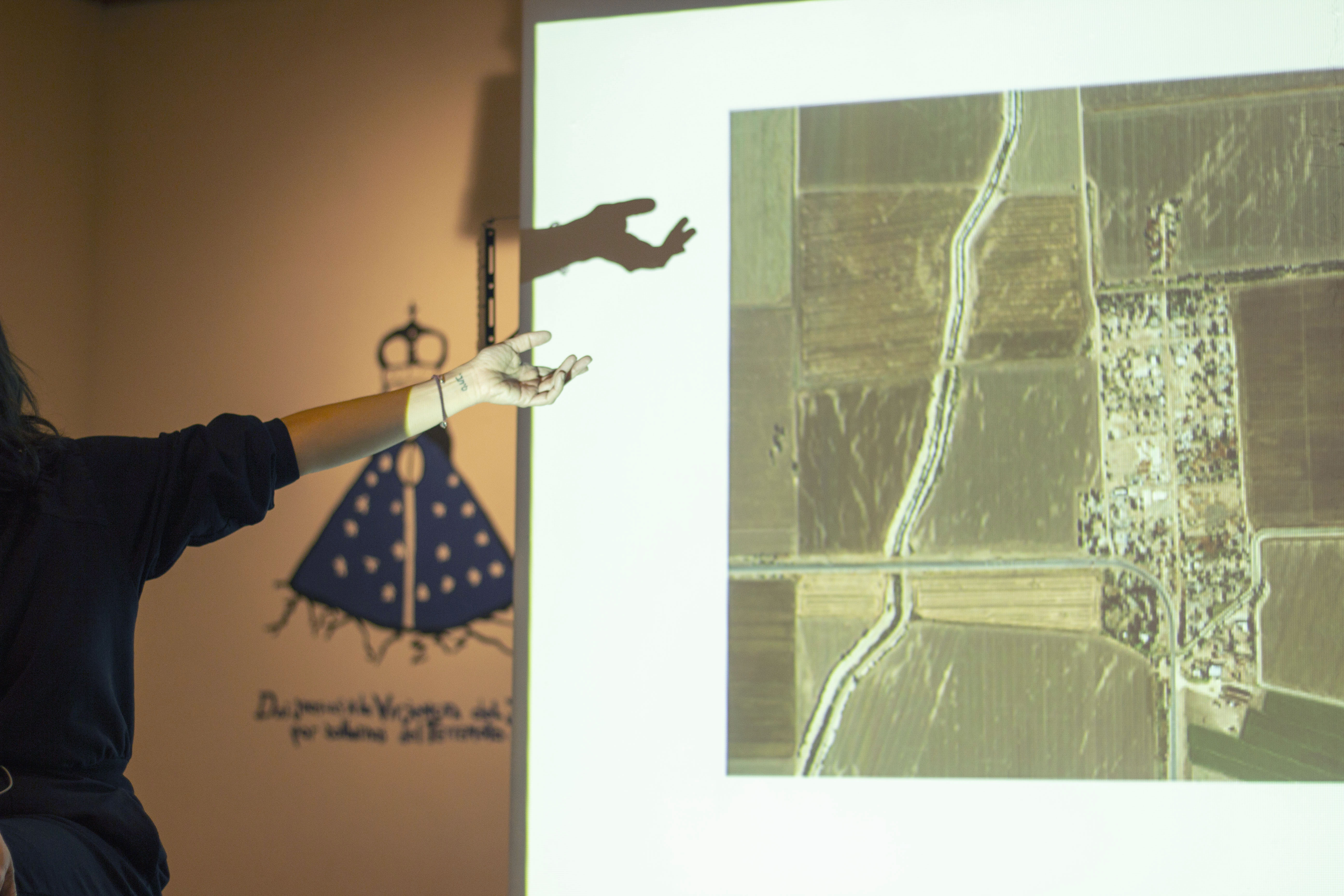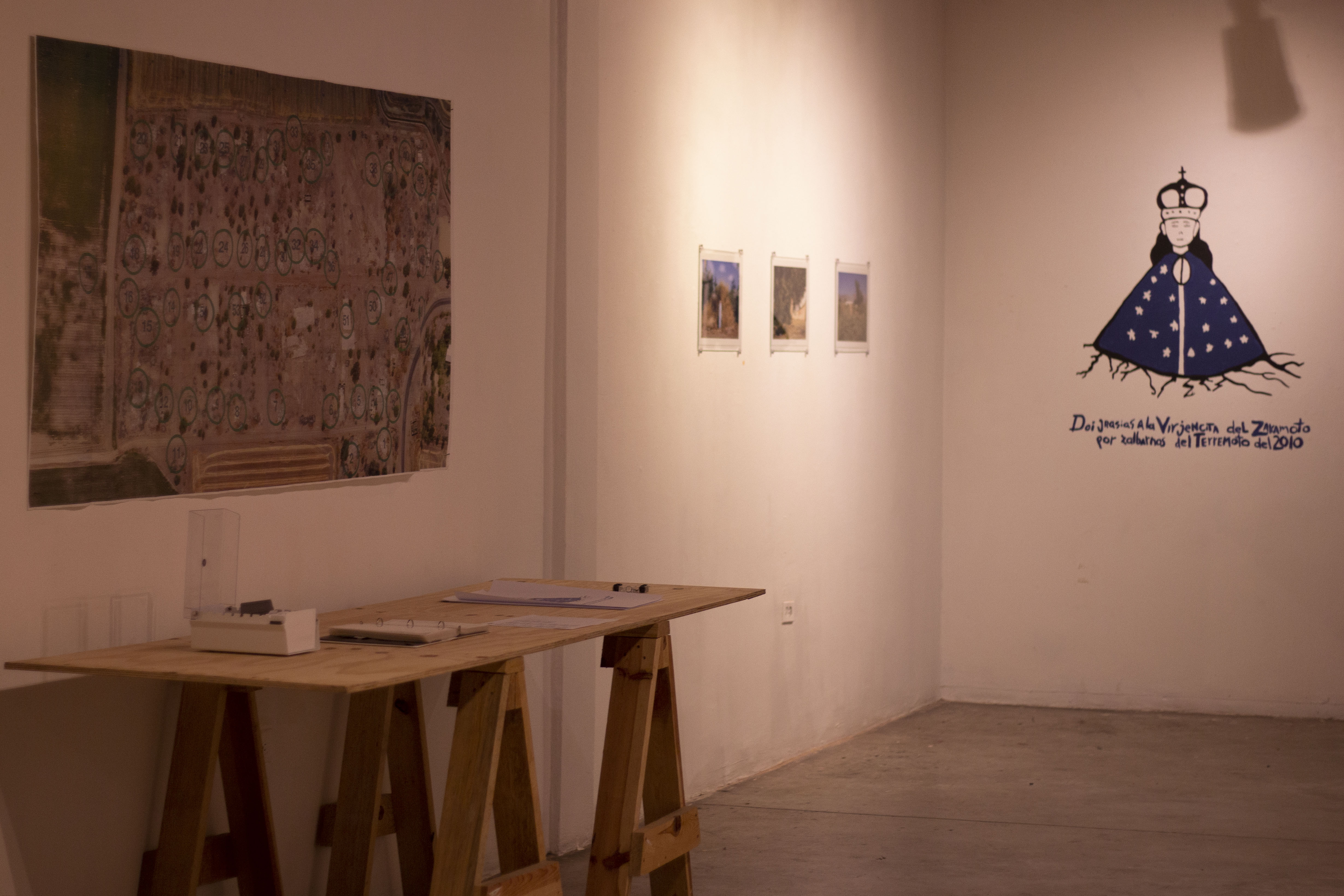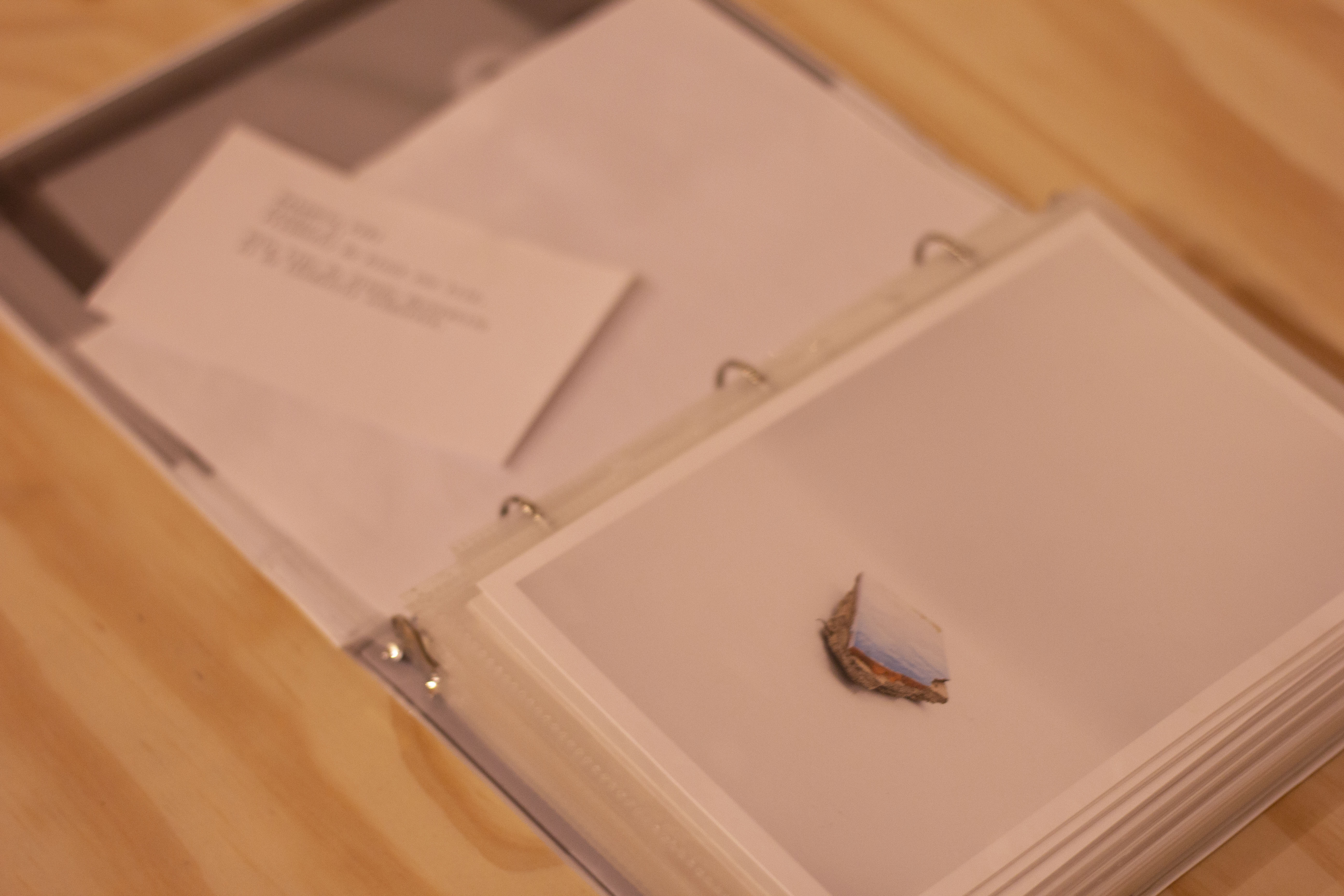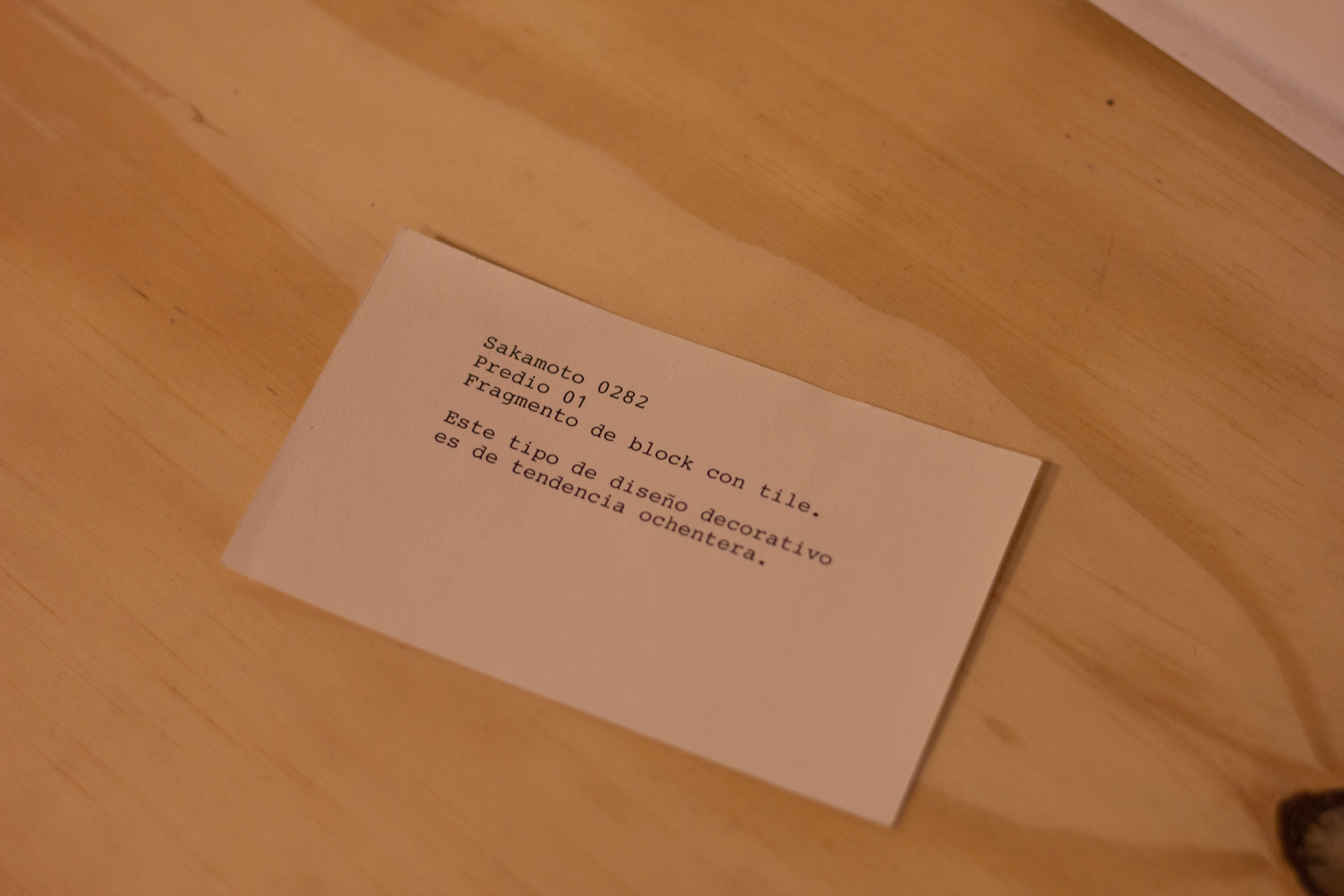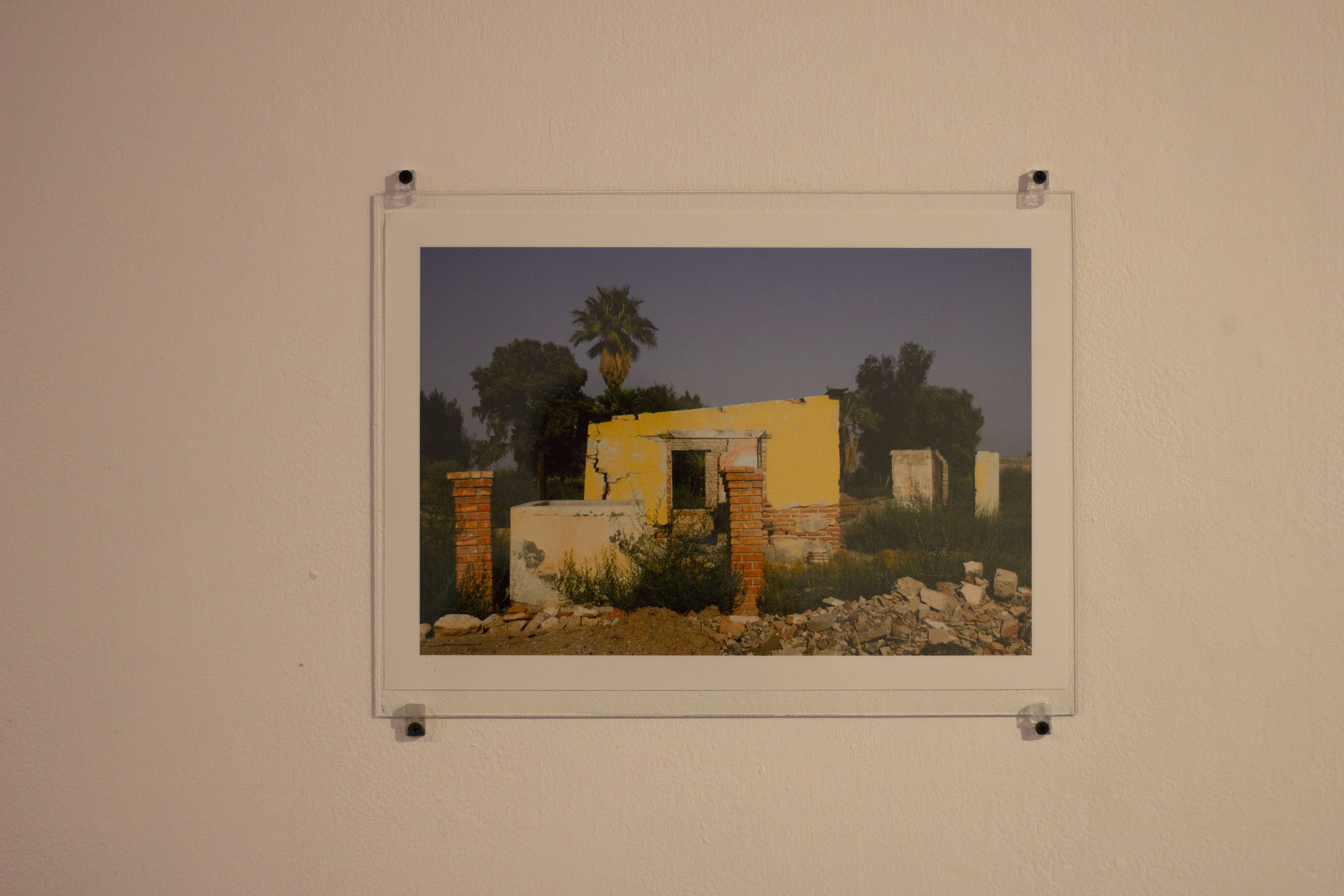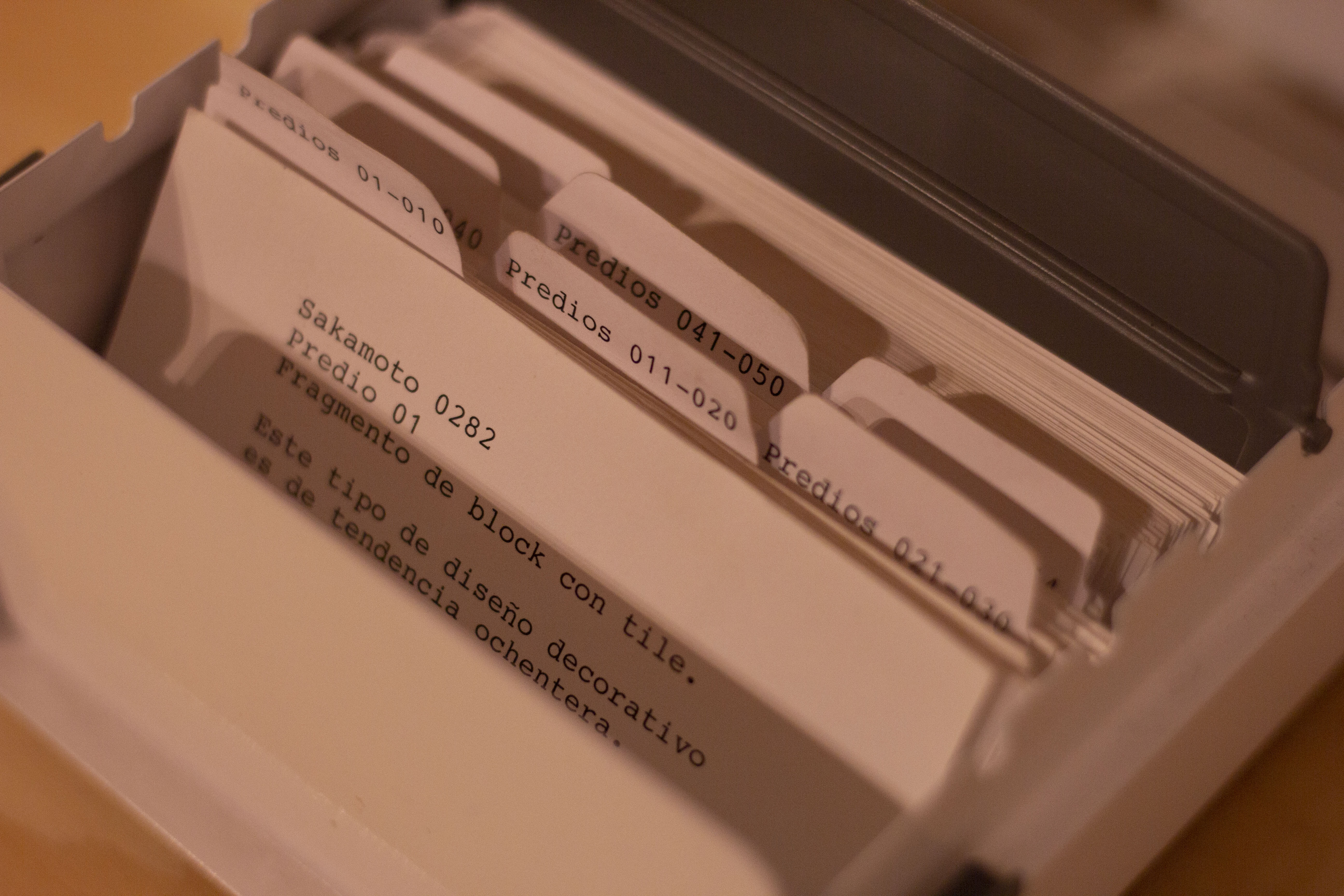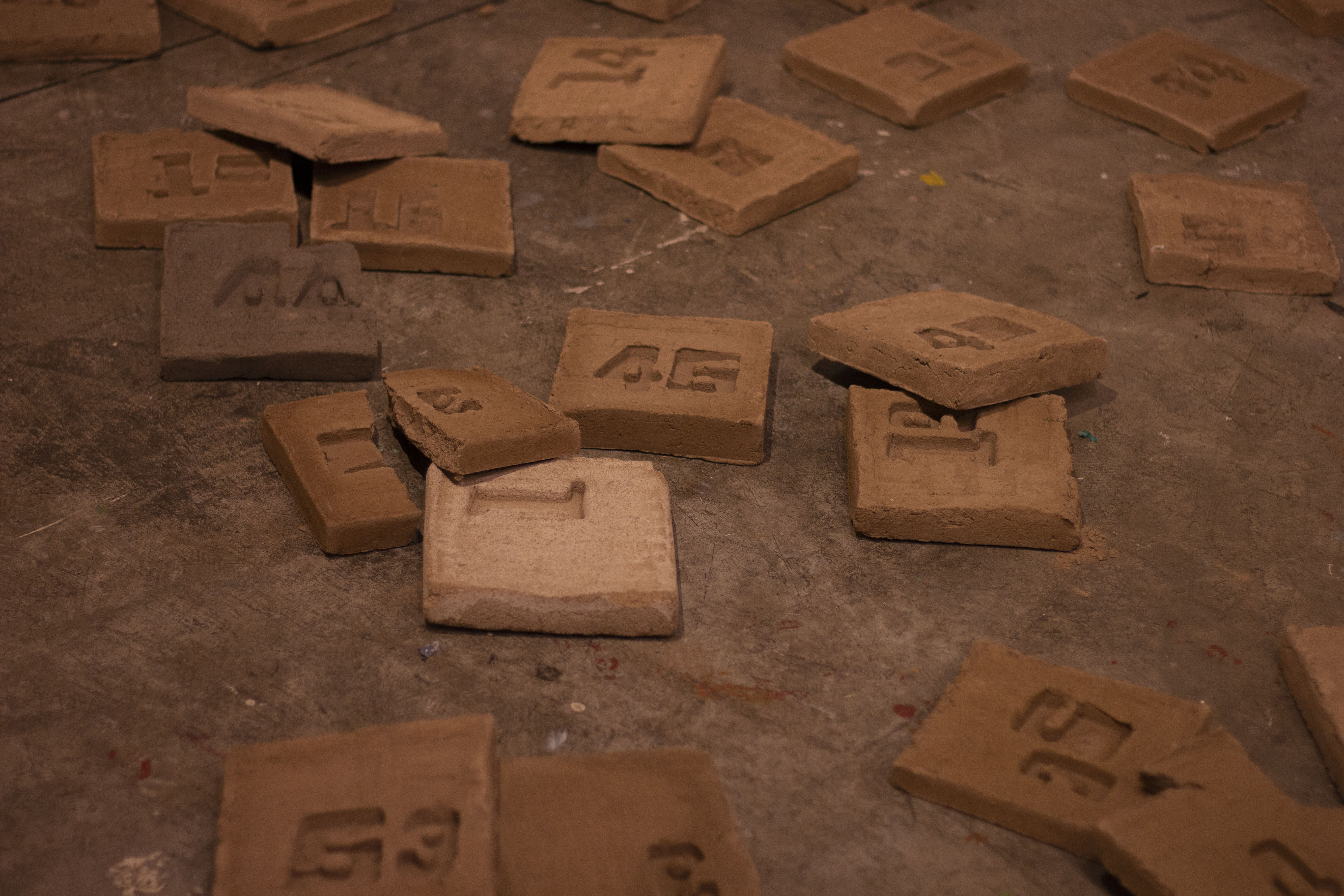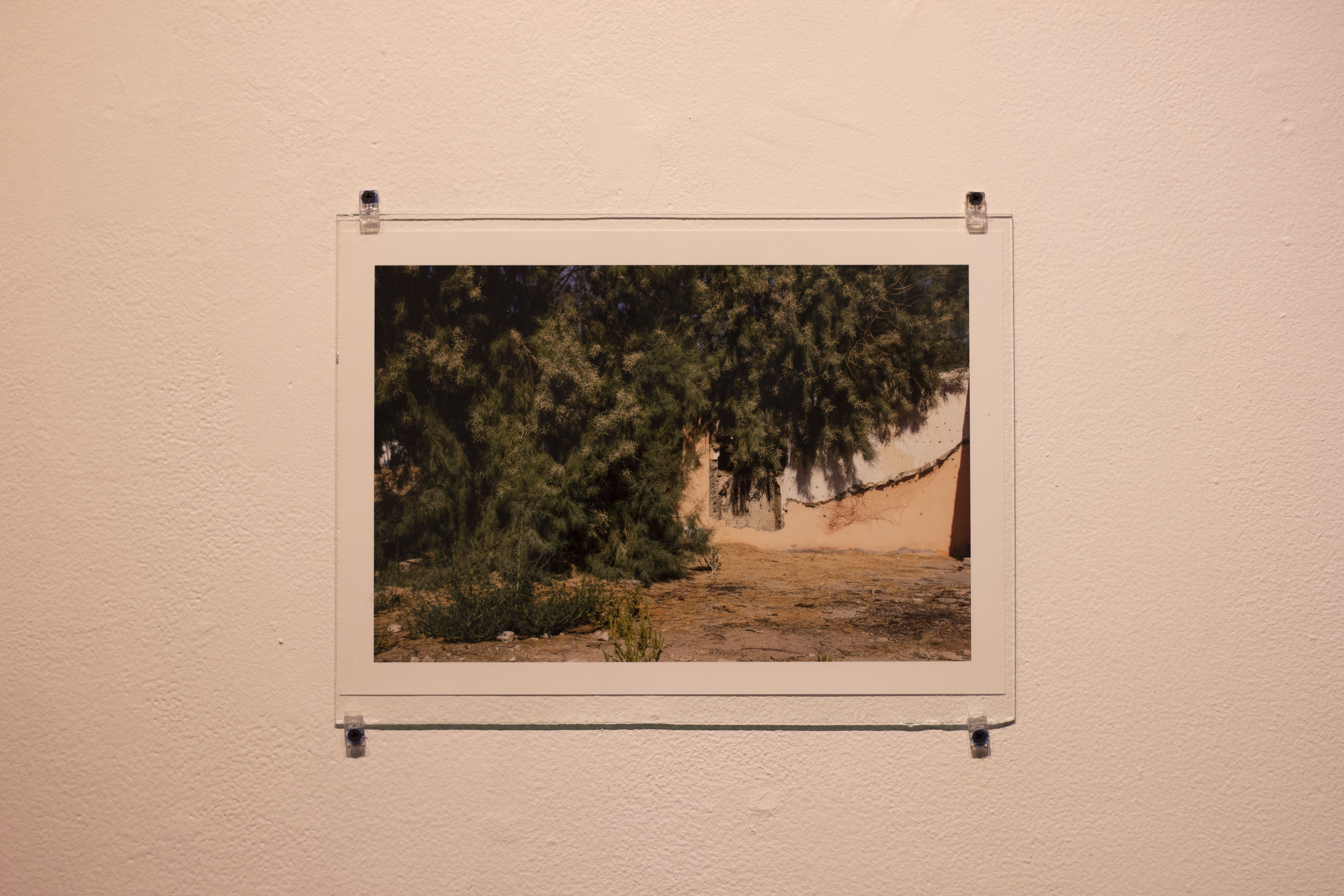SAKAMOTO
Solo exhibition by artist Karina Villalobos
31.09.2022-3.11-2022
@ Planta Libre Espacio Experimental
Mexicali, México
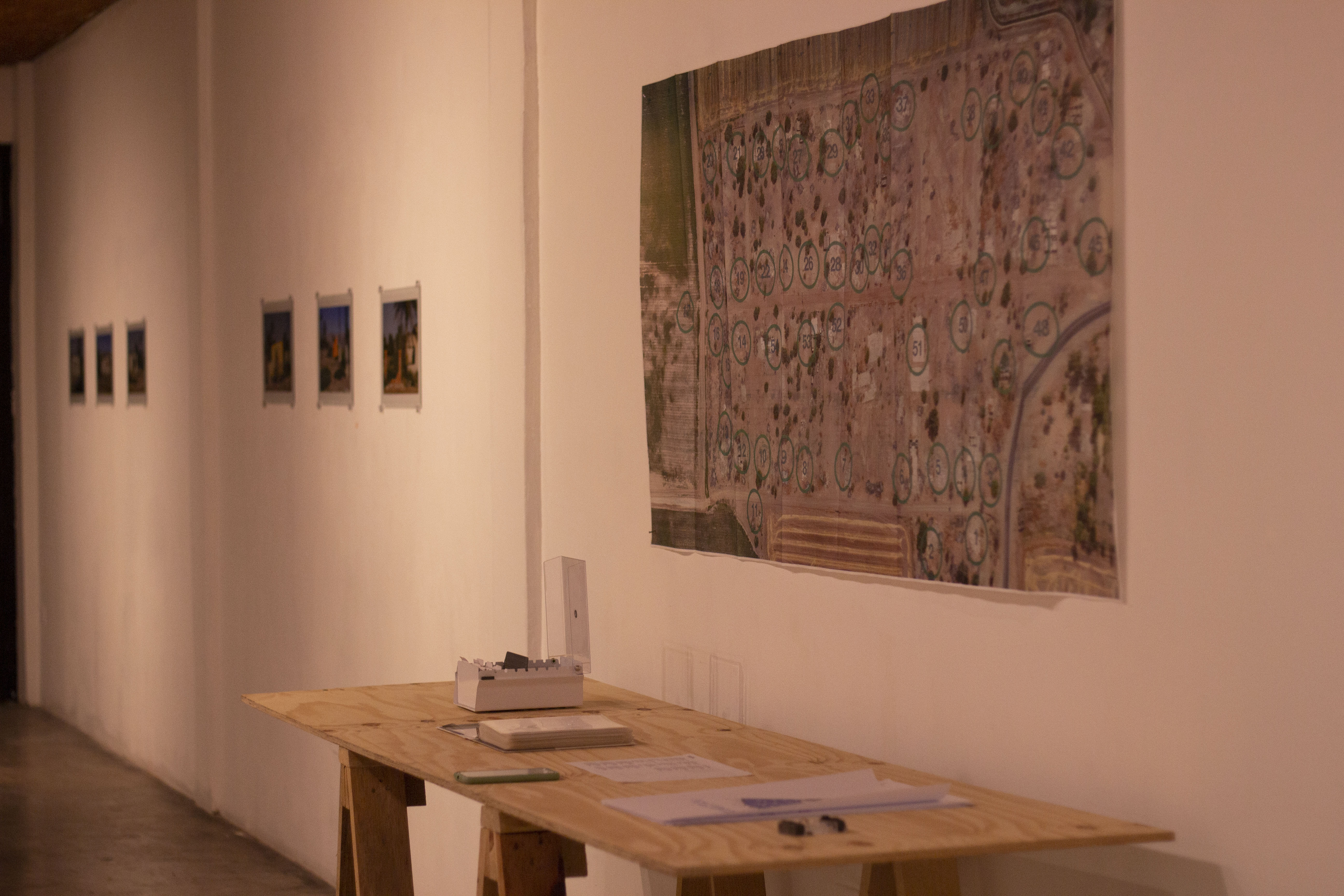
What would happen if our land detaches us?
History and the land - its fissures, contradictions, fictions - is the field from which the artist Karina Villalobos starts and seeks to relate to Sakamoto; a town located in the Valley of Mexicali that arises after one of the reroutes of the Colorado River which was ceded to the artist's family after the distribution of the land during the government of Lazaro Cárdenas. On April 4, 2010, following the 7.2 magnitude earthquake in Mexicali, Baja California, Sakamoto's land was opened and collapsed, preventing even the mobility of any vehicles to move to another site, forcing the displacement of those who lived there, including the artist's family.
Villalobos' work encompasses fields of study and notions such as geography, identity, memory, geopolitics, economy, and process/reprocess. She began to unfold the project in 2016, with explorations on-site, taking video recordings and producing a map composed of images.
Everything excavated was labeled, and stored in identification bags and a log of images of each of the materials found at each site was prepared and later returned. In 2018, Villalobos decided to produce mud bricks with the soil from each of the fifty-four lots. She collaborated with the brickmaking neighborhood “del Chorizo” located in the Mexicali Valley to experiment and learn how to make them. She decides not to bake these bricks so that in time they would crumble, and turn to dust as Sakamoto is today. This artistic research proposes an out-of-place archive; it invites us to look at the details of Sakamoto's soil, at the configuration/composition of his land, and at what is deposited on it - memories, debris, and garbage.
This series of materials, documents, and tools present in the space, require us to consult them without losing sight of the affectivity and intimacy that these objects embody. It is an archive for the identification of memories - an affective cartography -, which disturbs both those who know nothing of Sakamoto and those who inhabited its streets. It is a loose, wandering memory about a land determined to take geological movements that go beyond us. The artist does not appeal to reconstruction or oblivion but to the act of reclaiming and taking with her a territory that existed.
Curated by Rosela del Bosque
Exhibition design: Minoru Kiyota, Karina Villalobos and Rosela del Bosque
Curatorial text by: Rosela del Bosque
Poster design: Rosela del Bosque
Images: Mayté Miranda
